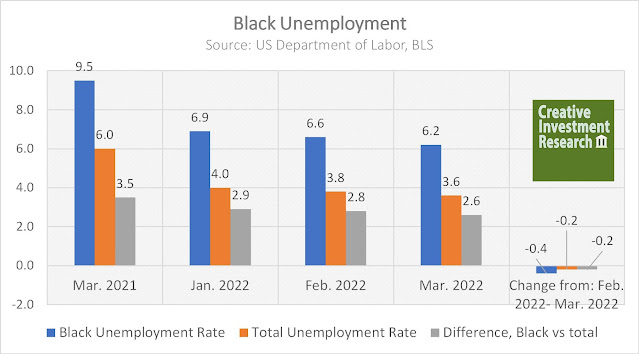We note that, according to the minutes of the March 15-16 2022 Federal Open Market Committee (FOMC) meeting, the Federal Reserve Board "reached consensus..that they would begin reducing the central bank balance sheet by $95 billion a month, likely beginning in May. There also were strong indications that half-percentage point, or 50 basis point, interest rate increases are ahead."
This action is consistent with past policy errors: on July 15, 2015, Janet Yellen, then Chair of the Federal Reserve stated that "the Fed's concerns about inflation limit its ability to address high African-American unemployment."
This is indicative of the continuing inability of Fed policy makers to successfully balance social and financial policy when social policy goals do not serve the interest of non-minority, non-wealthy populations. As the Fed itself noted "the..balance sheet has grown to $8.9 trillion from $8.1 trillion in July, reflecting continued net asset purchases of U.S. Treasury securities and agency mortgage-backed securities to support smooth market functioning and foster accommodative financial conditions, thereby supporting the flow of credit to households and businesses. All of the Federal Reserve's emergency credit and liquidity facilities have been closed for new lending for some time, and the residual outstanding balances at those facilities have continued to decline."
Graphically,
The prime beneficiaries of Fed balance sheet policy have been majority-owned financial institutions. This is, in essence, a Fed mandated and managed corporate welfare program for large, non-minority firms. That the Fed claims this effort supports "the flow of credit to households and businesses" is another error. There is no objective, independent, unbiased data to support the contention that credit, if it does in fact flow, is allocated in a non-discriminatory manner to highest and best use.
(Of course, should the Fed desire more detail they are free to contact us, but we note that incompetence, anti-Black discrimination and exclusionary practices based on race are currently operational in investment and finance, including at regulatory bodies.)


